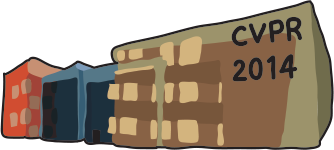-
Beyond Human Opinion Scores: Blind Image Quality Assessment based on Synthetic Scores
AbstractState-of-the-art general purpose Blind Image Quality Assessment (BIQA) models rely on examples of distorted images and corresponding human opinion scores to learn a regression function that maps image features to a quality score. These types of models are considered "opinion-aware" (OA) BIQA models. A large set of human scored training examples is usually required to train a reliable OA-BIQA model. However, obtaining human opinion scores through subjective testing is often expensive and time-consuming. It is therefore desirable to develop "opinion-free" (OF) BIQA models that do not require human opinion scores for training. This paper proposes BLISS (Blind Learning of Image Quality using Synthetic Scores). BLISS is a simple, yet effective method for extending OA-BIQA models to OF-BIQA models. Instead of training on human opinion scores, we propose to train BIQA models on synthetic scores derived from Full-Reference (FR) IQA measures. State-of-the-art FR measures yield high correlation with human opinion scores and can serve as approximations to human opinion scores. Unsupervised rank aggregation is applied to combine different FR measures to generate a synthetic score, which serves as a better "gold standard". Extensive experiments on standard IQA datasets show that BLISS significantly outperforms previous OF-BIQA methods and is comparable to state-of-the-art OA-BIQA methods.
Related Material
[pdf][bibtex]@InProceedings{Ye_2014_CVPR,
author = {Ye, Peng and Kumar, Jayant and Doermann, David},
title = {Beyond Human Opinion Scores: Blind Image Quality Assessment based on Synthetic Scores},
booktitle = {Proceedings of the IEEE Conference on Computer Vision and Pattern Recognition (CVPR)},
month = {June},
year = {2014}
}
These CVPR 2014 papers are the Open Access versions, provided by the Computer Vision Foundation.
Except for the watermark, they are identical to the accepted versions; the final published version of the proceedings is available on IEEE Xplore.
Except for the watermark, they are identical to the accepted versions; the final published version of the proceedings is available on IEEE Xplore.
This material is presented to ensure timely dissemination of scholarly and technical work.
Copyright and all rights therein are retained by authors or by other copyright holders.
All persons copying this information are expected to adhere to the terms and constraints invoked by each author's copyright.

